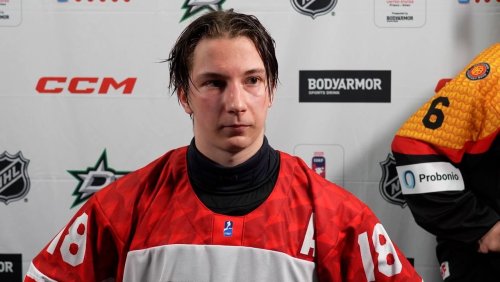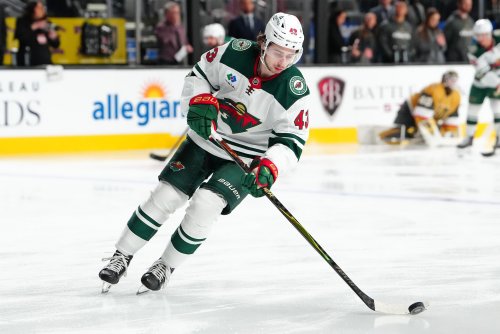
There’s something to be said for fast starts when your backs are against the wall. The Edmonton Oilers proved that Sunday with a convincing 7-1 home victory to force a Game 7 against the Anaheim Ducks in the second round of the Stanley Cup Playoffs.
The Oilers led 5-0 after the first period. It started with a pair of goals from Leon Draisaitl (who later capped a hat trick) at the 2:45 and 7:22 marks of the game. It was 3-0 about a minute later. The scoring push was enough to chase Ducks goalie John Gibson after he surrendered the trio of goals on just six shots.
The Oilers had a fast start, played in the offensive zone and just didn’t let up.
It would have been easy for the Oilers to be completely intimidated by the veteran Anaheim team in this series. Instead, they responded by winning the first two games on the road. In Game 5, they were up 3-0 with about three minutes left in the third before allowing the Ducks to tie it and grab ahold of momentum with a double-overtime win.
The Minnesota Wild could take note of the response from the Oilers in Game 6.
While there are plenty of reasons to suggest this comparison is apples to oranges, getting back to the basic thought that a strong start to a hockey game is beneficial should be all the comparison necessary to make this point.
The Wild, of course, were down 3-1 to the St. Louis Blues facing another must-win situation in Game 5 at home. With everything to play for in front of home fans, an energized start should have been no problem. Get the puck, crash the net, create chances and grab a lead.
Instead, they went down 2-0 before they ended up coming back to force overtime. It may be exciting for the sport, but overtimes in playoff-deciding games are tough. A wrong bounce, a bad goal and it’s all over. The Wild found that out the hard way.
The poor start line item goes back to Game 3 in St. Louis. Already down two games to none in the series, the Wild should have been ready to go and take a game away from the Blues in their building. Take the crowd out of it and get the Blues off their play-with-the-lead game plan.
Instead, Wild fans were left wondering what was happening in the first 10 minutes of that game. It didn’t look like a team that was fighting to get an important playoff victory. The Wild failed to score first once again and lost the game 3-1.
Starting off well isn’t everything. As already noted with the Anaheim example, they found a way to come back from three goals down and then got the win. But starting off sluggish with a lack of intensity is bound to catch up with a team during the playoffs.
It also turns out that St. Louis goaltender Jake Allen isn’t a brick wall after all. He and the rest of the St. Louis Blues saw their season end Sunday with a 3-1 loss to the Nashville Predators. The Blues lost the second-round series 4-2.
Allen gave up 22 goals in the playoffs, just eight of them to the Wild in five games. It’s funny because he was added to the list of hot goaltenders the Wild always seems to meet with in the postseason (Corey Crawford, Jose Theodore). Nashville had no trouble pumping in four goals against him in the first game of their series. Suddenly, Allen wasn’t really the story anymore.
Funny how that works.
The hot-goalie excuse is maybe understandable for a game. At some point though, the Wild need the accountability back on themselves. Allen left plenty of rebounds. Wild players couldn’t convert. It had them so shaken confidence-wise that even scoring uncontested on a wrap-around proved unsuccessful. Eric Staal had such a chance but slid the puck to the post instead of in between the small gap between the goaltender’s skate and the pipe.
As fans watch the rest of the NHL playoffs, it’s interesting to watch how other teams approach their series. Now that the dust has settled on the Wild’s exit, maybe it’s time to evaluate what went wrong, what can be done to fix it and what expectations should be for Minnesota’s hockey team moving forward.
Think you could write a story like this? Hockey Wilderness wants you to develop your voice, find an audience, and we'll pay you to do it. Just fill out this form.






Recommended Comments
There are no comments to display.
Join the conversation
You can post now and register later. If you have an account, sign in now to post with your account.
Note: Your post will require moderator approval before it will be visible.